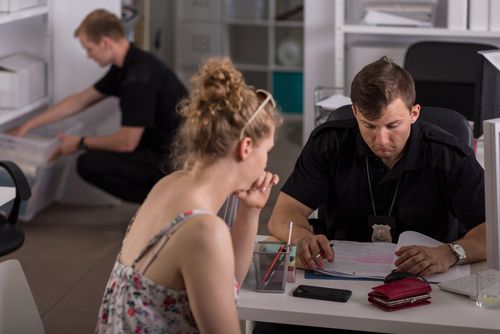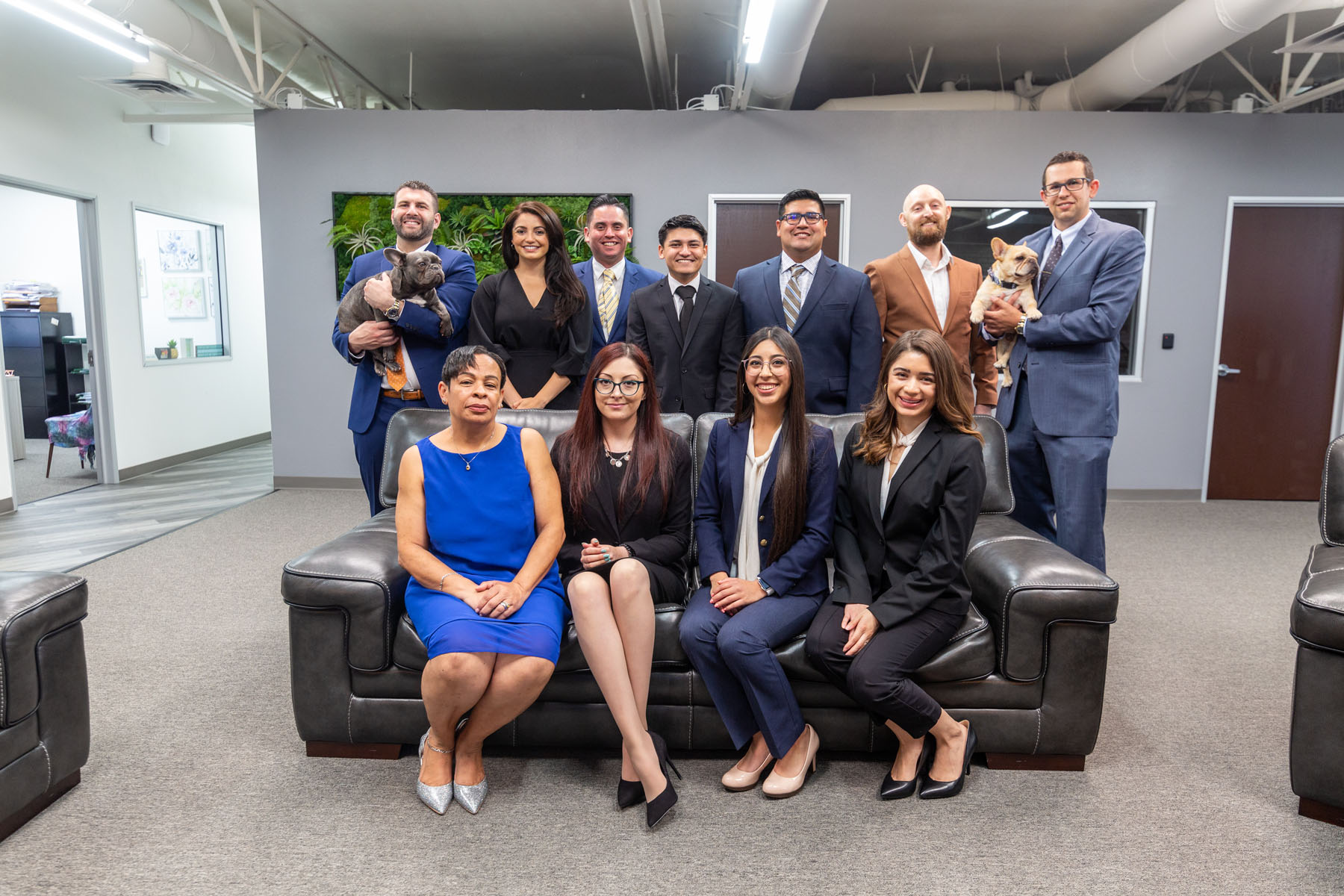Car accidents destroy lives, and they can strike at any time on the road. While some people may come out of such accidents unscathed, many will have their lives forever transformed by the incident.
In 2017, over 37,000 people died in accidents on American roads, according to the National Highway Traffic Safety Administration. The NHTSA also reports that, in the same year, 1.7 million suffered injuries in nearly 2.8 million known auto accidents. Nearly three percent of accidents resulted in severe injuries.
Car accidents can happen at any time. They can affect the rest of your life. If you have experienced an accident that left you with a severe injury, or if a road traffic collision has caused a bereavement in your family, you should know your rights. To help those suffering after a car accident, we have outlined some facts and described your rights below.
Only a professional and experienced lawyer, however, tell you for definite if you have a case.
Fault and Negligence Defined
Legal terms can confuse many who do not deal with them on a regular basis. A lawyer can help you to better understand terms such as fault and negligence and how they apply to your case.
In the law, fault refers to the share of responsibility that a person assumes when they are part of an accident. This level of fault is directly reflected in the compensation that must be paid to the victim.
Courts assess fault by carefully determining negligence at the time of the collision. Negligence happens when an individual falls short in applying the level of care and attention expected of them in their particular situation, for example, when operating a vehicle or when using the road.
A lawyer can help you to prove that another person’s negligence caused the accident, or at least determine the level of negligence of one or of both parties.
If you remain unsure as to whether you have a negligence case, consider the following guidelines and examples:
- When you can prove that you exercised caution, but the other party exhibited carelessness; or if you can prove that their level of carelessness exceeded that of your own
- The employer is usually responsible when an employee injures another through carelessness or recklessness while driving in their service.
- When an accident occurs on dangerous property, or by way of a defective product, the owner (in the case of the former) or the manufacturer (in the case of the latter) often bears responsibility.
- Accident cases do not need proof that rises to a level beyond reasonable doubt, as in a criminal case. You need only make a reasonable argument establishing their negligence
- If you also exhibited careless behavior in an accident, your right to compensation is reduced according to your own personal level personal negligence.
Only an experienced lawyer can help you to understand whether you are still entitled to compensation, even if you are personally at fault to an extent. If you are, your attorney will fight for a just settlement.
Types of Negligence
Negligence comes in many forms. The particular type of negligence the court decides applies to your case has a direct impact on the level of compensation that you receive. The different types are:
- Contributory negligence, recognized in a small number of states. This means if you have displayed any legally established negligence in the accident, you cannot sue for compensation
- Pure comparative negligence. This means that all parties can collect damages even if they are proven to have been at fault to some extent
- Modified comparative negligence prevents you from collecting compensation if the court finds you to be over 50 percent at fault for the accident. In other states, the bar is set at 51 percent.
- In some states, you can only collect compensation if the court finds that your level of negligence was “slight”, compared to that of the other driver
Since laws establishing negligence in auto accidents vary from state to state, you should consult with an attorney in your local area to determine the strength of your case.
The doctrine of contributory negligence still holds sway in Alabama, Maryland, North Carolina, Virginia, and Washington DC. In these jurisdictions, you will need a lawyer to help you prove that you displayed no negligence and hold no fault in causing the vehicle accident.
Proving Fault In a Car Accident Case Through Police Reports
A professional lawyer can use a variety of tools to help to prove a case of negligence in an auto accident.
Most importantly, a lawyer must prove that the other driver in your accident case was either seriously negligent while you remained blameless, or that your level of negligence was significantly less than that of the other driver.
Often, these cases hinge on the reports that are filed, and on interpretations of what the law itself says. The results are not always straightforward.
A lawyer will turn first to the police reports to determine if you have a strong case of negligence against another driver. The local, county, township, or state jurisdiction that responded to the call should have the police report readily available.
The police report will often contain vital information to use as evidence. In some cases, the officer will unequivocally state which party demonstrated negligence, or which party acted with more carelessness or recklessness. Sometimes the issuance of a citation for breaking the law can help to build a much stronger case for negligence.
Proving Fault Through Application of State or Jurisdictional Law
State traffic laws can also help to determine negligence. States can sometimes apply their own laws, rules, and interpretations. What looks negligent in one state might not be in another. An experienced lawyer can help you to examine your state’s vehicle code to see if the statutes or case law support your case for negligence.
In almost the entire United States a driver will assuming complete liability for accidents that occur in two situations particular. Running into the rear end of another car, for example, will always be deemed 100% the fault of the driver at the rear. You have a legal duty to maintain a proper following distance, and to react accordingly if the driver in front slows or stops.
Also, if you are involved in an accident while turning left at an intersection while the car on the outside of you goes straight, you have full liability in that situation.

Proving or Mitigating Fault Through Other Drivers’ Actions
The law requires that every person using a public roadway exercise due diligence in transporting themselves and others in a reasonably safe manner. A lawyer can examine a defendant’s driving conduct and come away with evidence to prove a case of negligence.
Many times these cases come down to violating reasonable standards of motor vehicle operation. For example, if a person was proved to be speeding when the accident occurred, this will elevate their level of fault in the accident. Police routinely determine this by measuring tire skid marks and damage caused in the accident.
Drivers have the responsibility to protect passengers to a reasonable extent while operating a motor vehicle, and passengers can sue drivers for injuries suffered. In most cases, however, if the passenger knew that the driver was impaired at the time that they agreed to ride, this could affect their level of compensation. If you ride with a person whom you know is drunk, has done drugs, is sleepy, or known to be habitually reckless, a court will often find that you have assumed a level of risk when entering the vehicle.
A passenger also assumes a level of risk when he or she knowingly rides in a car that lacks basic safety equipment. If the passenger knows that a light does not function, the brakes are too worn, or that the car is otherwise unsafe, he or she could forfeit at least some claim to damages.
If the driver can prove that the passenger interfered with the safe operation of the vehicle, the passenger will be found to be at fault.
Finally, a pedestrian cannot violate the law and receive full damages if hit by a vehicle. In many jurisdictions, jaywalking and other unsafe and illegal actions can reduce damages considerably.
If you feel that you have suffered an unfair accusation of negligence, an experienced trial attorney will help you deliver an accurate view of your case to the court.
Proving That Negligence Caused the Accident
Frighteningly, negligence occurs millions of times per day on the nation’s roads. People drive with a range of distractions, from mobile phones to fast food. They make poor decisions, such as speeding or passing in unsafe areas. In the vast majority of instances, this negligent behavior does not cause accidents.
Because of this, the plaintiff cannot simply establish that the driver displayed negligence. His or her lawyer must establish with evidence a chain of events that prove that the negligence caused the accident. This represents a standard in every jurisdiction in the United States.
While some may feel able to stand up in court and prove that negligence was the key cause, this almost always results in failure. Your best opportunity to get the justice that you deserve is by hiring an experienced trial attorney to represent your interests.
What Is Comparative Negligence
In the states in which comparative negligence applies, both parties may potentially be awarded damages.
The situation often works like this: Driver A gets into an auto accident with Driver B in a state that allows comparative negligence. If the accident does not fall under a “no doubt” rule, such as the applied to rear end collisions, then the court can assess negligence. Assume Driver A gets assessed 70 percent of the fault and Driver B 30 percent. The court will generally tally up Driver B’s total damages and assess them against Driver A minus Driver B’s percentage of culpability. If the damages total $100,000, then Driver B will get $70,000.
Remember that comparative negligence has different definitions from state to state. Some states do not have this concept at all. A professional and experienced attorney can help you to sort through your jurisdiction’s laws and evidence from the incident to determine your level of potential compensation.
When Do You Need to Obtain a Lawyer
If you have gotten involved in an accident that results in injuries, you should immediately contact an attorney.
First and foremost, if you received injuries you need an experienced lawyer to help to determine if you have a case for compensation. Do not trust that the other party or their insurance company will agree with your personal assessment on injuries or culpability. Only a lawyer can effectively fight for you.
Additionally, the other party may accuse you of behaviors that could affect your amount of compensation. They have the incentive to falsely accuse you of negligence or of assumption of risk, depending on the accident. You need an attorney to defend your interests.
Conversely, the other motorist involved in the accident may try to unfairly maximize their claim against you by making false accusations of negligence. An attorney can help you to establish the truth in a court of law and prevent unjust verdicts against you that could cost tens or even hundreds of thousands of dollars.
For safety’s sake, make sure that you retain a lawyer to protect you in any accident that involves injuries, whether they be your own or someone else’s.
Reach Out Today to Learn More
If you have suffered injury from an auto accident, or in another incident, and you were not at fault, you need a lawyer. At Batta Fulkerson, we help injured motorists get their fair and just compensation.
Call today with any questions. Our friendly and expert staff can help you to better understand where you stand and why you need representation. They can also set you up with a consultation, absolutely free. If you choose us, we receive no fee unless we win your case.
Our number is (619) 333-555. You may also send an email to info@battafulkerson.com or contact us here.
If you deserve justice after an accident, don’t let the compensation that you need pass you by. Call us today.




